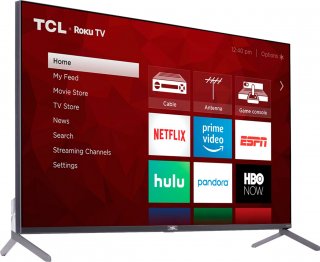Is Roku Getting Ready to Dump YouTube TV? It Could Happen.
In a move that could have a major effect on the market for alternatives to cable TV, Roku this week threatened to remove Google’s YouTube TV app from its platform.
In a move that could have a major effect on the market for alternatives to cable TV, Roku this week threatened to remove Google’s YouTube TV app from its platform.
Roku this week sent an email to its user base warning them of the potential move.
“We are sending this email to update you on the possibility that Google may take away your access to the YouTube TV channel on Roku,” the email said. “Recent negotiations with Google to carry YouTube TV have broken down because Roku cannot access Google’s unfair terms as we believe they could hard our users.”
Roku went on to say that because it considers it important to “stand up for our users,” that they “cannot accept Google’s unfair and anti-competitive requirements to manipulate your search results, impact the usage of your data, and ultimately cost you more.”
The removal of YouTube TV from Roku devices could prove devastating to the service’s market share. If someone has only Roku TVs and boxes in their house, the removal of YouTube TV would render them, essentially, unable to watch TV, unless they use an inconvenient workaround such as casting their shows from their phone or just watching on a mobile device.
In addition, because vMVPDs like YouTube TV do not require contracts and make it very easy to cancel service, a Roku banishment of YouTube TV could result in large numbers of customers quitting YouTube TV and immediately jumping to Hulu + Live TV or possibly another competitor.
Of course, there’s always the possibility that the Roku letter is merely a tough negotiating ploy, and that the dispute will ultimately be resolved without the app going away. AT&T’s WarnerMedia and Roku had a long standoff last year that kept HBO Max off of Roku for several months before the two parties reached an agreement in December. Roku had also fought with NBC Universal about including Peacock on the service until the sides came to an agreement in September.
Carriage disputes, often between cable and satellite companies and TV station owners, are often bitterly argued in public, with the different sides using commercials and social media messages to blame the other, and attempt to sway public opinion.
Axios, in a story about the dispute, said that the carriage agreement between Google and Roku is expiring imminently.
“We have been working with Roku in good faith to reach an agreement that benefits our viewers and their customers,” a Google spokesperson told Axios of the talks.
“Unfortunately, Roku often engages in these types of tactics in their negotiations. We’re disappointed that they chose to make baseless claims while we continue our ongoing negotiations.”
Stephen Silver, a technology writer for The National Interest, is a journalist, essayist and film critic, who is also a contributor to The Philadelphia Inquirer, Philly Voice, Philadelphia Weekly, the Jewish Telegraphic Agency, Living Life Fearless, Backstage magazine, Broad Street Review and Splice Today. The co-founder of the Philadelphia Film Critics Circle, Stephen lives in suburban Philadelphia with his wife and two sons. Follow him on Twitter at @StephenSilver.

